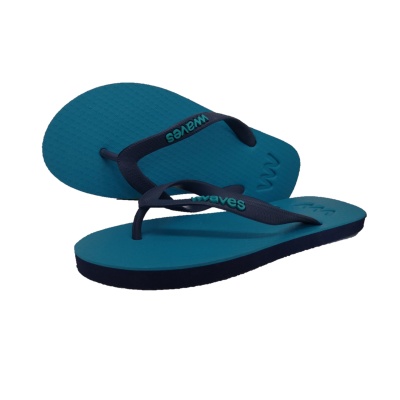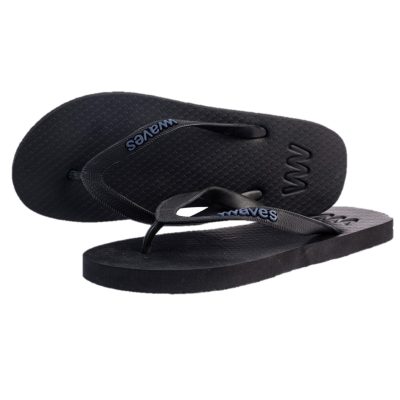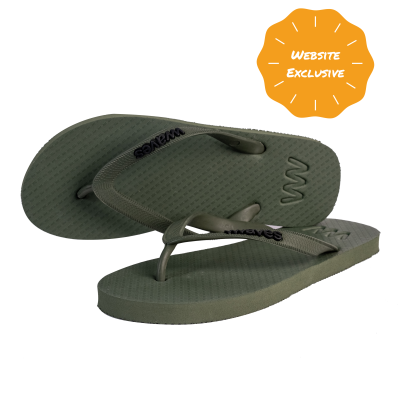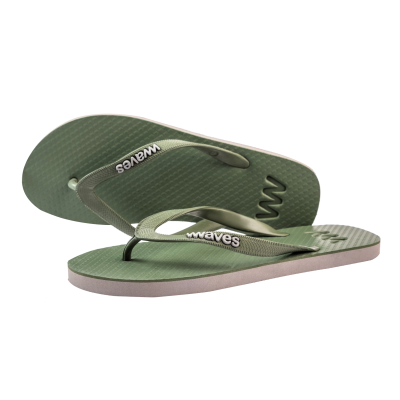In the scorching summer months, flip flops become the go-to footwear for people all over the world. They’re easy to slip on, comfortable, and perfect for a day at the beach or a casual stroll. But have you ever considered the environmental impact of those cheap plastic flip flops you see everywhere? Here, we’ll explore what you need to know about the ecological consequences of conventional flip flops vs an eco-friendly pair like Waves!
Most mass-produced flip flops are made from plastic materials, such as polyurethane, PVC, or EVA (ethylene-vinyl acetate). These synthetic materials have several damaging drawbacks when it comes to the environment:
Standard flip flops are typically non-biodegradable, which means they can sit in landfills and oceans for hundreds of years, contributing to pollution and causing more damage to our planet than the eco-friendly alternatives!
As plastic flip flops break down over time, they fragment into tiny pieces known as microplastics. These microplastics can harm marine life, and even end up in our food chain. According to studies, there are around 50-75 TRILLION pieces of microplastics in the ocean today, and that number continues to grow.
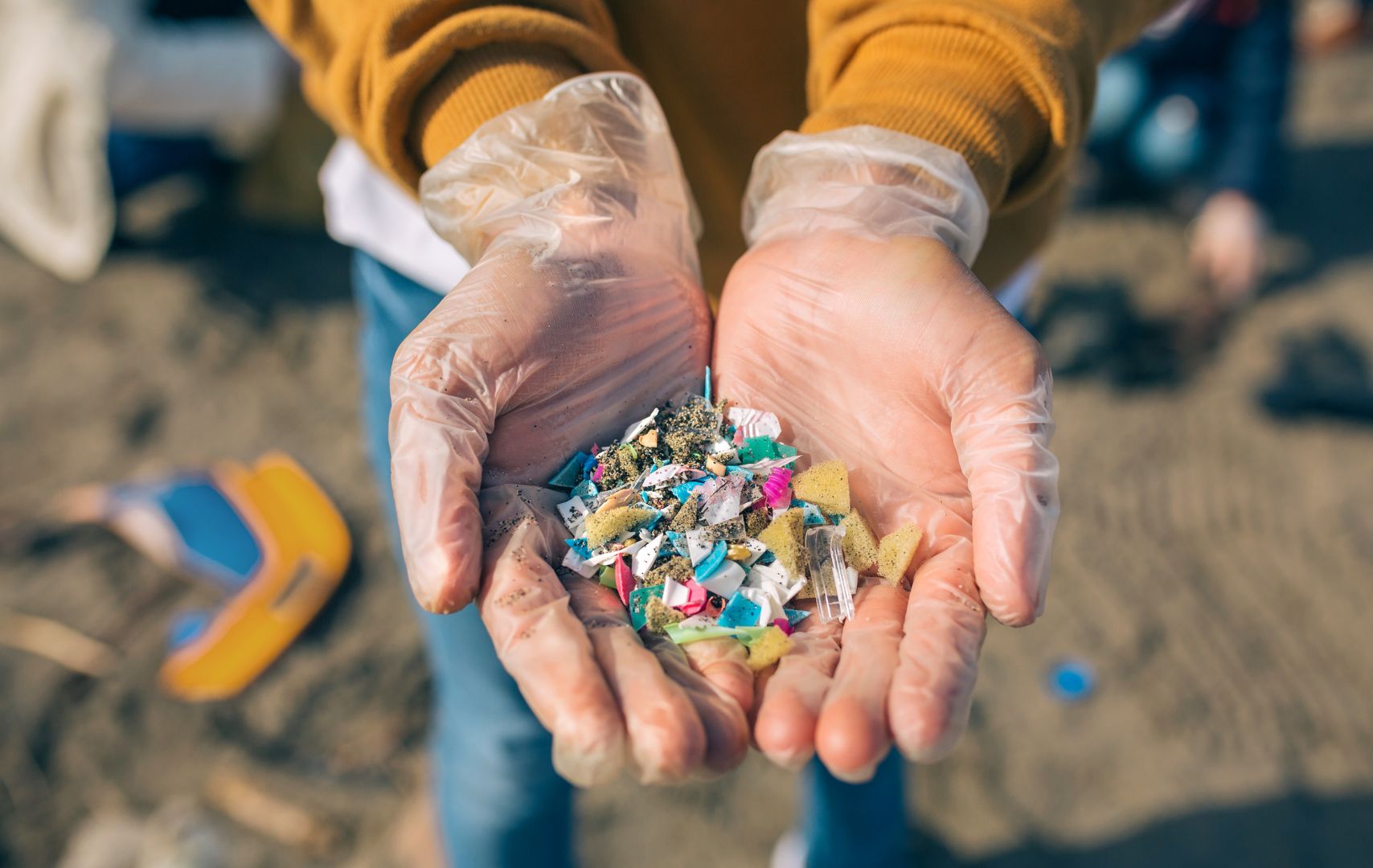
The environmental impact of flip flops extends beyond their disposal. The production process also raises environmental concerns.
Manufacturing plastic flip flops consumes significantly more energy and resources, including petroleum-based raw materials. The extraction and processing of these resources contribute to greenhouse gas emissions and habitat destruction all over the world.
The production of synthetic materials often involves the use of harmful chemicals, further impacting ecosystems and human health. These chemicals often find their way into our oceans and environments – it’s estimated that 310 Kg of toxic chemicals are released into our air, land and water each and every second.
One of the biggest issues with standard flip flops is their short lifespan. These inexpensive, mass-produced footwear options tend to wear out quickly, leading to more frequent replacements. You’ve probably heard the term ‘fast fashion’; the result is a continuous cycle of production and disposal, exacerbating the environmental impact, which is leading to full landfill sites and the destruction of natural environments.
When discussing the environmental impact of standard flip flops, it’s crucial to consider their contribution to ocean pollution. These lightweight and often brightly coloured sandals are, unfortunately a common sight on beaches worldwide. Many standard flip flops end up washed ashore, abandoned by their owners, or lost at sea. These seemingly harmless items pose a severe threat to marine ecosystems.
Discarded flip flops are a part of the larger problem of marine debris, which threatens aquatic life. Marine animals ingest or become entangled in flip flops and other plastic waste, causing injury or death. Plus, ocean currents carry discarded flip flops and other plastic debris across vast distances, contributing to transboundary pollution. A flip-flop lost on one coast can end up on another continent’s shoreline.
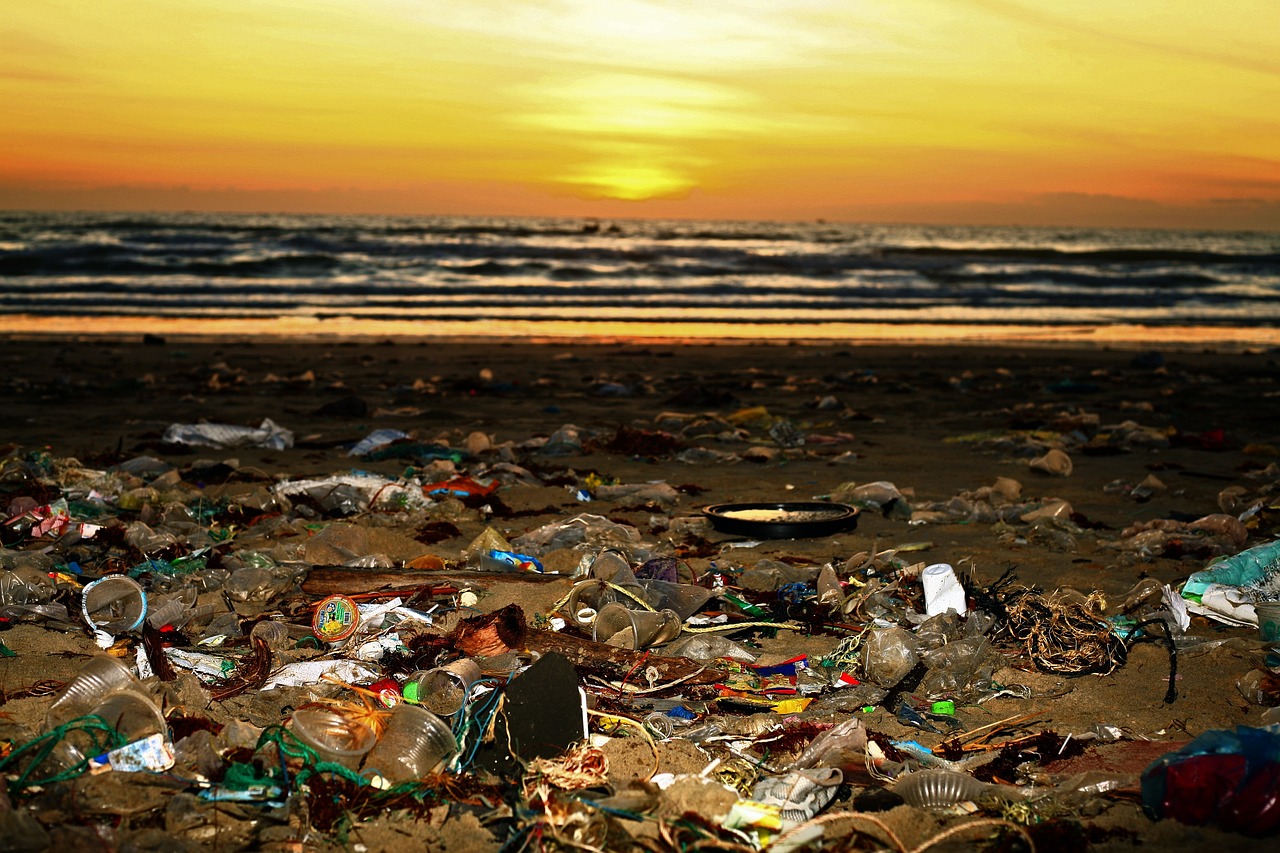
To mitigate the environmental impact of your footwear choices, consider the following eco-friendly solutions
Opt for flip flops made from natural rubber, such as Waves Flip Flops. Natural rubber is biodegradable, reducing the burden on landfills and oceans.
Extend the lifespan of your flip flops by taking good care of them and repairing them when possible. When it’s time to replace them, consider recycling or upcycling them to give them a second life.
If you must dispose of old flip flops, do so responsibly by ensuring they end up in the appropriate waste disposal stream.
Look for footwear companies that prioritise sustainability, ethical sourcing, and responsible manufacturing practices. Your support can encourage more companies to adopt eco-friendly approaches!
At Waves, we aim to fight against flip flop pollution by creating our flip flops using environmentally friendly materials and methods. Consider the long-lasting benefits of natural rubber flip flops or sustainable alternatives and help protect our oceans and the planet for generations to come.
